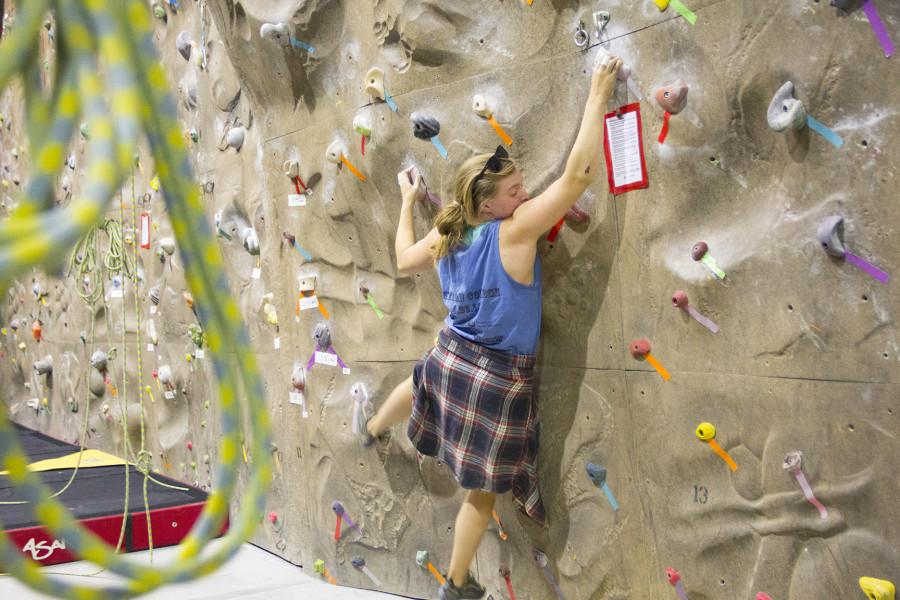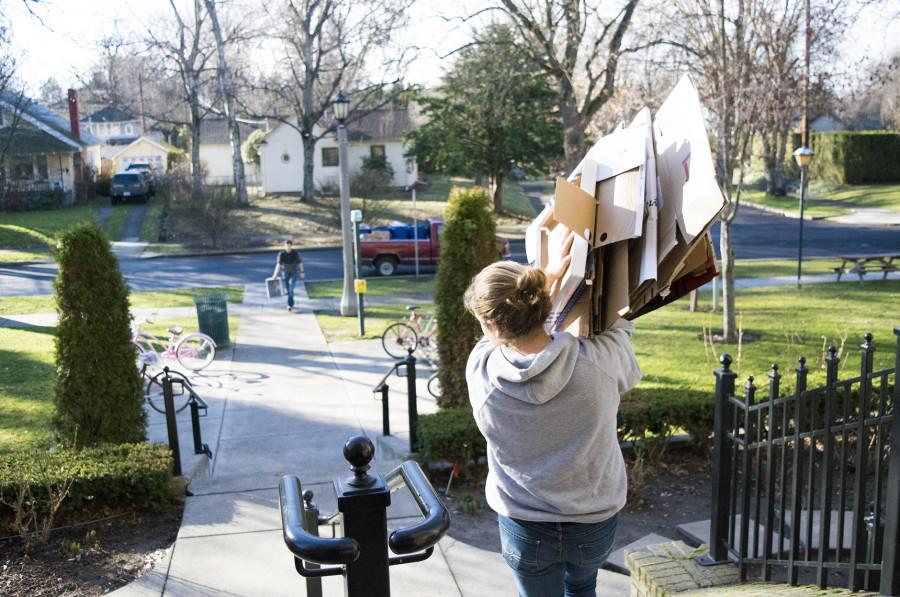Four years ago, there was not a place for single women in need of shelter to go in Walla Walla. The local women’s STEP shelter has since changed that.
“Before, there was the YWCA domestic violence center, and then there was the Christian aid shelter directed towards men and families. It was seen that single women didn’t have anywhere to go when they were homeless. So that was a need that was lacking on the community. The women’s shelter has been operating since 2009,” said Housing Coordinator and STEP shelter manager Kelsey Beckmeyer.
The shelter, located at 582 Ash St., is open from 7 p.m. to 7 a.m. during the week and all day on the weekends so that the tenants can relax. The shelter is classified as an emergency shelter, but women are allowed to stay there for up to 90 days. There are 18 beds at the shelter, with an average of nine to 10 women occupying them each night.

First-year Zoey Kapusinski was inspired to volunteer at the shelter after her housing and homelessness SCORE this summer, in which she volunteered with organizations including Helpline, the Men’s Christian Aid Center and Blue Mountain Action Council.
“My shift is 3.5 hours. I come to the shelter, check in, get the keys and then I just hang out. A couple of times I’ve tried to do homework, but I always end up getting sucked into conversations,” said Kapusinski.
Volunteering consists mainly of hanging out with the women, talking with them and occasionally watching a movie with them. The volunteers are responsible for checking out dishes to the women and generally keeping the peace between them.
Sophomore Jacqueline Bonilla got involved with the shelter about a year ago and has had a great experience so far. She was inspired to volunteer when she heard that a lack of volunteers means the women have no place to stay on the weekends. Once she started volunteering, she found that she enjoyed her time at the shelter.
“It’s always nice to get away from the Whitman bubble. There’s usually an activity scheduled for the ladies [run] by others who also donate their time. We’ve had a few spa and yoga activities set up. You also have the freedom as a volunteer to set up your own activity you want to do with the women,” said Bonilla.
During the weekends, the volunteers are on duty, and a paid staff member is on call in case any problems arise. According to Beckmeyer, the women who stay in the shelter really appreciate the time volunteers put in to ensure that beds are available over the weekend.
All women are accepted to the shelter as long as they follow the basic rules. A few have stood out specifically in the volunteer’s minds.

“We had a woman who came to us a little over a year ago who had been working two jobs, lost her first job and was struggling to pay her bills and take care of her kids. She then lost her second job and her apartment. She came to us in about August and was focusing on getting her life together. In the span of a year, she was able to purchase a house, get her kids back and then we actually hired her on as a consistent night manager for us and she has a second job,” said Beckmeyer.
Even though she has only been volunteering at the shelter for a short time, Kapusinski has formed relationships with some of the women, and even their children, whom she will play with sometimes.
“One of the women who is really nice is a bus driver, and often times she’ll get a night shift, so it’s really nice for her to sleep during the day, and she’ll usually wake up during my shift, and we will just talk about our day or our week,” said Kapusinski.
Lyman Resident Director Molly Knell is the volunteer coordinator for the shelter. She believes it is important for Whitman students to get involved with issues within the community so that they can learn to respect people from all different backgrounds.
“I think what’s tough for me is that Whitman students are really aware of social justice issues, but people will still make homeless jokes and I’ve noticed how we just don’t humanize people who are homeless. It’s not fair. Some women are born into family situations that are abusive. A lot of them are not coming into life with the same opportunities that we have,” said Knell.
She frequently visits women at the shelter, and encourages volunteers to get to know them better as well.
“No one is coming from the same background –– different education, different family backgrounds. Some people have no history with substance abuse or mental illness and others do. You learn that you can’t really generalize. For some, the system has failed them or social services haven’t been great,” said Knell.
Beckmeyer agrees that mutual respect is one of the most important qualities to have at the shelter.
“The number one part of the rights and responsibilities we have is respect –– to respect other people staying there, to respect yourself and to respect the staff and volunteers,” she said.
This respect is especially important because the shelter is not only a safe place for women to stay, but also a community for them to be a part of.
“You really get to know people over a period of weeks. It’s supposed to feel like a family. Generally the ladies are very thankful that we’re there on the weekends because they understand that it’s volunteer work,” said Knell.
Without volunteers, the shelter wouldn’t be able to offer the day hours that the women value so much.
“We’ve had a really great relationship with Whitman students,” said Beckmeyer. “We’ve had a lot of volunteers from Whitman. We’re just really fortunate to have such a great connection.”









